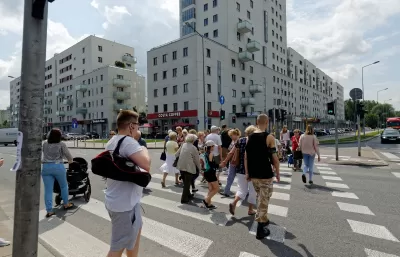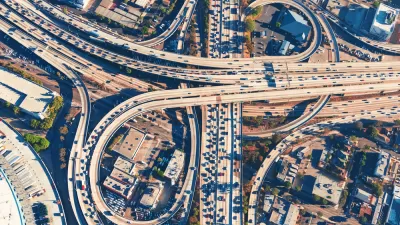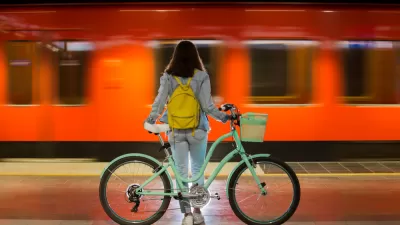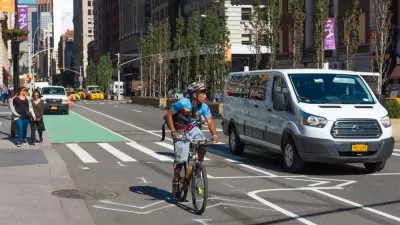The assumption that it’s “impossible” to live without a car in many American cities perpetuates infrastructure projects that privilege and induce driving.

In light of the many harmful effects of an overreliance on automobiles, “Why can’t we ask people to drive less and use transit or walk or bike?” asks Rachael Ludwick in The Urbanist. “Because, as implied in a recent New York Times article and claimed commonly elsewhere, it’s supposedly ‘infeasible’ in much of the United States to live without a car.”
This is largely because, Ludwick argues, “Our system has for more than eighty years subsidized driving in myriad ways that people don’t even notice.” Yet “People who can’t or don’t drive learn to get around wherever they live: and they live everywhere including places that are ‘impossible’ or ‘infeasible’ without a car.”
For Ludwick, walking is often a joyful experience. “But it’s not always a joy for everyone because many places do lack safe and convenient ways to walk, bike or bus. Our lives – and frankly everyone’s lives – could be immensely improved if only more people were driving less and were less committed to protecting driving and space for it.”
Ludwick also points out the environmental impact of driving. “In the United States, 29% of our carbon emissions come from transportation, mostly private vehicles,” calling on more people to try new transportation modes and pressure policymakers to fund safe walking and biking infrastructure and public transit. “Millions of Americans trying to get around without their cars will build support for the myriad of fixes we need to create a transportation system that works for everyone.”
FULL STORY: What If You Didn’t Have to Drive a Car?

Alabama: Trump Terminates Settlements for Black Communities Harmed By Raw Sewage
Trump deemed the landmark civil rights agreement “illegal DEI and environmental justice policy.”

Study: Maui’s Plan to Convert Vacation Rentals to Long-Term Housing Could Cause Nearly $1 Billion Economic Loss
The plan would reduce visitor accommodation by 25% resulting in 1,900 jobs lost.

Planetizen Federal Action Tracker
A weekly monitor of how Trump’s orders and actions are impacting planners and planning in America.

Wind Energy on the Rise Despite Federal Policy Reversal
The Trump administration is revoking federal support for renewable energy, but demand for new projects continues unabated.

Passengers Flock to Caltrain After Electrification
The new electric trains are running faster and more reliably, leading to strong ridership growth on the Bay Area rail system.

Texas Churches Rally Behind ‘Yes in God’s Back Yard’ Legislation
Religious leaders want the state to reduce zoning regulations to streamline leasing church-owned land to housing developers.
Urban Design for Planners 1: Software Tools
This six-course series explores essential urban design concepts using open source software and equips planners with the tools they need to participate fully in the urban design process.
Planning for Universal Design
Learn the tools for implementing Universal Design in planning regulations.
Caltrans
Smith Gee Studio
Institute for Housing and Urban Development Studies (IHS)
City of Grandview
Harvard GSD Executive Education
Toledo-Lucas County Plan Commissions
Salt Lake City
NYU Wagner Graduate School of Public Service





























